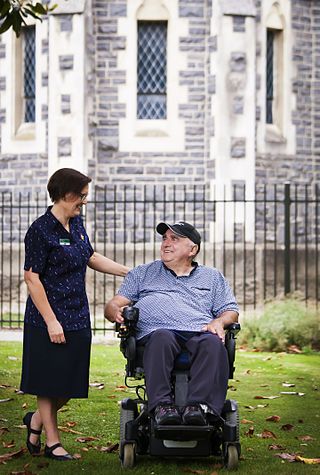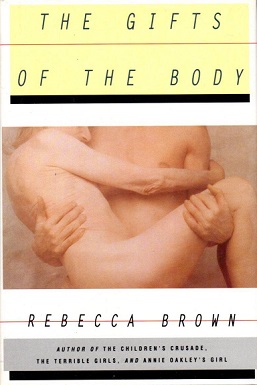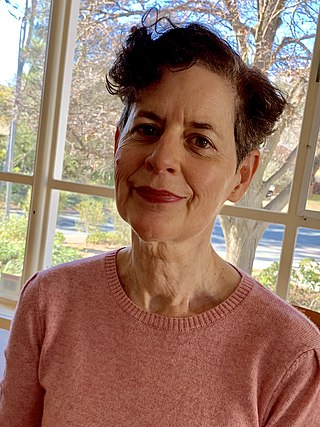Related Research Articles
Bioethics is both a field of study and professional practice, interested in ethical issues related to health, including those emerging from advances in biology, medicine, and technologies. It proposes the discussion about moral discernment in society and it is often related to medical policy and practice, but also to broader questions as environment, well-being and public health. Bioethics is concerned with the ethical questions that arise in the relationships among life sciences, biotechnology, medicine, politics, law, theology and philosophy. It includes the study of values relating to primary care, other branches of medicine, ethical education in science, animal, and environmental ethics, and public health.

Arthur L. Caplan is an American ethicist and professor of bioethics at New York University Grossman School of Medicine.

The Hastings Center is an independent, nonpartisan bioethics research institute and think tank based in Garrison, New York.
Ruth R. Faden is an American scientist, academic, and founder of the Johns Hopkins Berman Institute of Bioethics. She was the Berman Institute's Director from 1995 until 2016, and the inaugural Andreas C. Dracopoulos Director from 2014 to 2016. Faden is the inaugural Philip Franklin Wagley Professor of Biomedical Ethics.

Glenn E. McGee is the Dean of Admissions at Salem College and Professor of health sciences at Salem College. He has been noted for his work on reproductive technology and genetics and for advancing a theory of pragmatic bioethics, as well as the role of ethicists in society and in local and state settings in particular.
Albert R. Jonsen was one of the founders of the field of Bioethics. He was Emeritus Professor of Ethics in Medicine at the University of Washington, School of Medicine, where he was Chairman of the Department of Medical History and Ethics from 1987 to 1999. After retiring from UW, he returned to San Francisco, where he co-founded the Program in Medicine and Human Values at Sutter Health's California Pacific Medical Center in 2003.

A caregiver, carer or support worker is a paid or unpaid person who helps an individual with activities of daily living. Caregivers who are members of a care recipient's family or social network, and who may have no specific professional training, are often described as informal caregivers. Caregivers most commonly assist with impairments related to old age, disability, a disease, or a mental disorder.

Daniel Isaac Wikler is an American public health educator, philosopher, and medical ethicist. He is currently the Mary B. Saltonstall Professor of Population Ethics and Professor of Ethics and Population Health in the Department of Global Health and Population of the Harvard T.H. Chan School of Public Health in Boston. He is Director and a core faculty member in the Harvard Program in Ethics and Health (PEH). His current research interests are ethical issues in population and international health, including the allocation of health resources, health research involving human subjects, organ transplant ethics, and ethical dilemmas arising in public health practice, and he teaches several courses each year. He is a fellow of the Hastings Center, an independent bioethics research institution.
Family caregivers are "relatives, friends, or neighbors who provide assistance related to an underlying physical or mental disability for at-home care delivery and assist in the activities of daily living (ADLs) who are unpaid and have no formal training to provide those services."
Jonathan D. Moreno is an American philosopher and historian who specializes in the intersection of bioethics, culture, science, and national security, and has published seminal works on the history, sociology and politics of biology and medicine. He is an elected member of the National Academy of Medicine.
Ruth Macklin is an American philosopher and retired professor of bioethics.

Daniel John Callahan was an American philosopher who played a leading role in developing the field of biomedical ethics as co-founder of The Hastings Center, the world's first bioethics research institute. He served as the Director of The Hastings Center from 1969 to 1983, president from 1984 to 1996, and president emeritus from 1996 to 2019. He was the author or editor of 47 books.
Stephen Garrard Post has served on the Board of the John Templeton Foundation (2008-2014), which focuses on virtue and public life. He is a researcher, opinion leader, medical school professor, and best-selling author who has taught at the University of Chicago Medical School, Fordham University-Marymount, Case Western Reserve University School of Medicine (1988-2008) and Stony Brook University School of Medicine (2008-). He is widely known for his research on the ways in which giving can enhance the health and happiness of the giver, how empathy and compassionate care contribute to patient outcomes, ethical issues in caring for people with dementia, medical professionalism and the virtues, and positive psychology in relation to health and well-being. Post is an elected member of the College of Physicians of Philadelphia, the New York Academy of Medicine, and the Royal Society of Medicine, London. He was selected nationally as the Public Member of the United States Medical Licensing Examination (USMLE) Composite Committee (2000-2005), and was reappointed for outstanding contributions.

The Gifts of the Body is a 1994 novel by Rebecca Brown, and originally published by HarperCollins. The book consists of several interconnected stories.
Robert Klitzman is an American psychiatrist and bioethicist.

James F. Keenan is a moral theologian, bioethicist, writer, and the Canisius Professor of theology at Boston College.
Hilde Lindemann is an American philosophy professor and bioethicist and emerita professor at Michigan State University. Lindemann earned her B.A. in German language and literature in 1969 at the University of Georgia. Lindemann also earned her M.A. in theatre history and dramatic literature, in 1972, at the University of Georgia. Lindemann began her career as a copyeditor for several universities. She then moved on to a job at the Hastings Center in New York City, an institute focused on bioethics research, and co-authored book The Patient in the Family, with James Lindemann Nelson, before deciding to earn a Ph.D. in philosophy at Fordham University in 2000. Previously, she taught at the University of Tennessee and Vassar College and served as the associate editor of the Hastings Center Report (1990–95). Lindemann usually teaches courses on feminist philosophy, identity and agency, naturalized bioethics, and narrative approaches to bioethics at Michigan State University.
Jamie Lindemann Nelson is a philosophy professor and bioethicist currently teaching at Michigan State University. Nelson earned her doctorate in philosophy at the State University of New York at Buffalo in 1980 and taught at the University of Tennessee at Knoxville and St. John's University before moving to Michigan State University. In addition, Nelson was an Associate for Ethical Studies at The Hastings Center from 1990–95 and is both a Woodrow Wilson Visiting Fellow and a Fellow of the Hastings Center. Nelson usually teaches courses on biomedical ethics, ethical theory, moral psychology, feminist theory, and philosophy of language.
Rosemarie "Rosie" Tong is an American feminist philosopher. The author of 1998's Feminist Thought: A More Comprehensive Introduction, an overview of the major traditions of feminist theory, she is the emeritus distinguished professor of health care ethics in the Department of Philosophy at the University of North Carolina, Charlotte.

Catherine Waldby is an Australian academic, researcher and author. She is the Director of the Research School of Social Sciences at the Australian National University and a visiting professor at King's College London.
References
- ↑ "Family Caregiving". 23 September 2015.
- ↑ "Family Caregiving".
- ↑ "UM Online Faculty - Healthcare Advocacy Certificate". University of Miami. Archived from the original on 6 March 2012.
- 1 2 3 "Carol Levine, Championing The Caregiver's Cause". Fresh Air. NPR. 21 July 2008. Retrieved 15 August 2019.
- ↑ The Hastings Center Hastings Center Fellows. Accessed 6 November 2010
- ↑ Levine, Carol (2004). The Cultures of Caregiving. Johns Hopkins University Press. ISBN 9780801887710.
- ↑ "Living in the Land of Limbo | Item Detail". www.vanderbilt.edu. University Press | Vanderbilt University. Retrieved 14 June 2017.